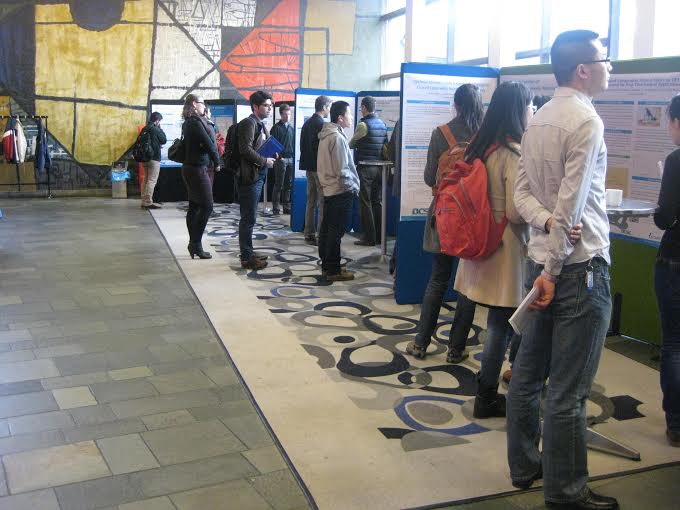The Delft Center for Systems and Control (DCSC) celebrated their 10 year anniversary with an all-day symposium.
Ten years ago, systems and control engineering was spread throughout different faculties at the TU Delft.
The groups from mechanical engineering, electrical engineering and physics decided to merge in order for systems and control engineering to be studied in a cohesive group. The group is now based in the faculty of Mechanical Engineering (3ME).
“What’s special is that we always try to play a central role at the university. We conduct collaborations with aeropsace, physics, electrical and civil engineering,” explains Prof. Robert Babuška of DCSC. Babuška has been a part of DCSC for its entirety. “The biggest change has been in the number of master’s students. The first year we had fifteen or sixteen and this year there were eighty-five new students,” he says.
In the opening statement department head Prof. Hans Hellendoorn highlight an overview of DCSC’s achievements. In the past ten years, around 300 students have graduated with a degree through DCSC, it has greater than 250 journal publications, five DCSC employees have received a Veni Project and Prof. Michel Verhaegen had the great honour of an ERC Advanced Grant.
The DCSC focuses on several areas of systems and control engineering. The main ones include optics and imaging, process technology, transport and infrastructure, robotics and mechatronics and wind energy. “We ask – are there open control loops that need to be closed? We close as many of them as possible,” says Hellendoorn.
The day continued with workshops by three professors in systems and control engineering, including short presentations by some of TU Delft’s own faculty. Prof. Dario Floreano of École polytechnique fédéral de Lausanne (EPFL) lectured on design, control and application of bioinspired drones. Prof. Colin Jones also of EPFL, lectured on theory and tools for real time model predictive control. His research focuses on optimization, essentially speeding up calculations. A calculation that would take fifteen years to complete fifteen years ago, now is done in thirty seconds. Capping the symposium off, was final guest speaker Lennart Ljung of the University of Linköping, lecturing on what regularization can offer for estimations of dynamic systems. Among other accomplishments, he is noted for being a founder of system identification. The symposium also included a poster session highlighting the current research of the DCSC.



Comments are closed.